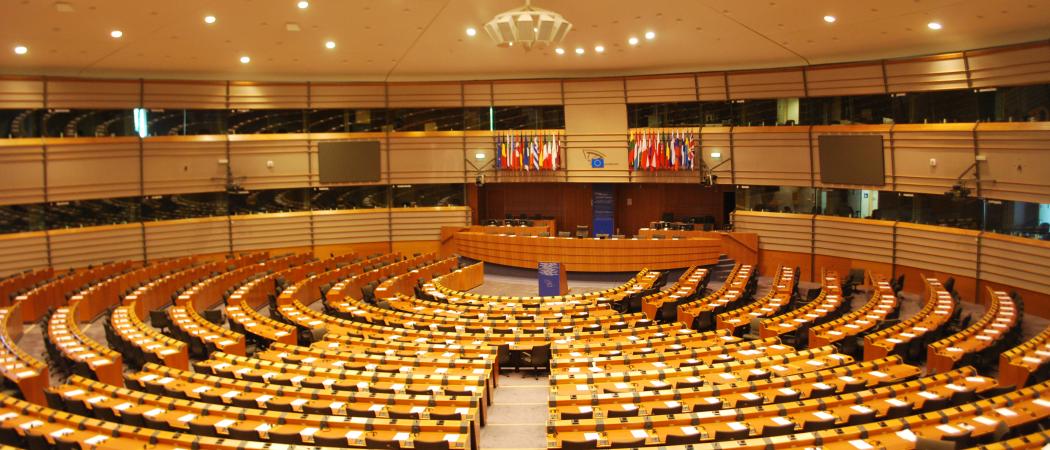Votes on boosting green technology production, sharing health data for research, and access to EU supercomputers for AI start-ups are among the last acts of this mandate

MEPs have been busy in Strasbourg this week as they rushed to clear the outstanding files in the final plenary before European elections in June, including several votes on texts related to research and innovation.
While some of these votes applied the rubber stamp, others set the scene for negotiations with the Council in the second half of the year. We round up the key events in this week’s plenary.
Net Zero Industry Act
MEPs officially adopted the Net Zero Industry Act on Thursday, which aims to support domestic production of green technologies such as solar panels, fuel cells and electrolysers, after reaching a deal with member states in February.
It is supposed to be the EU’s answer to the US Inflation Reduction Act, but while across the Atlantic companies have access to generous tax credits, Europe’s plan is mainly limited to simplifying permitting procedures, updating public procurement rules to favour European producers, and supporting the development of regional clusters. It sets a target of producing 40% of the net-zero technologies the EU requires by 2030.
The new law is also the EU’s answer to criticism that the Green Deal did not come with sufficiently ambitious industrial policies. Competitiveness is set to be one of the key themes of the next five years, with EU leaders at last week’s special European Council summit calling for a “new European competitiveness deal”.
“We need a coherent investment plan, an improved regulatory environment and other framework conditions such as investment in research and development,” said the EPP’s Christian Ehler, Parliament’s lead negotiator on the law. “Improving our competitiveness must be the EU's leitmotif for the coming years. Today's adoption of the Net-Zero Industry Act is significant, but it can only be a start.”
EU Health Data Space
MEPs also approved the creation of a European Health Data Space, rubber-stamping the deal reached between the Parliament and the Council last month. The law will facilitate the cross-border sharing of patients’ health data, both with health professionals, and for research and innovation purposes – so-called secondary uses of data. It is notably expected to boost research into rare diseases by pooling data at a European level.
The final text includes a possibility for patients to opt out of having their data processed for research purposes, except in cases of public interest such as public health research and policy making.
The agreement must still be formally approved by the Council. It will then be applied two years after its entry into force, although the chapter on secondary use will only apply after four years, or six years for certain categories of data.
AI Factories
Parliament adopted its report on the Commission’s proposed AI Factories, to facilitate access to EU supercomputers for start-ups developing trustworthy artificial intelligence systems. The text does this by amending the regulation which established the European High Performance Computing Joint Undertaking.
MEPs from the Parliament’s industry committee (ITRE) made several changes, adding amendments to establish a one-stop shop under the joint undertaking to facilitate open access, and to require entities hosting supercomputers to have energy efficiency and environmental sustainability plans, as the use of supercomputers for AI “requires a significant increase in computational power”.
The initiative delivers on a promise made by Commission President Ursula von der Leyen during her state of the union address in September last year, and is part of a package of measures aimed at fostering the development of AI models made in Europe. The regulatory measures included in the AI Act made the biggest headlines this mandate, but the EU also wants to stimulate innovation to reap the benefits of AI.
New Genomic Techniques
The EU’s bid to relax rules on plants obtained using new genomic techniques (NGTs) will have to wait until after the elections. MEPs already adopted their position on 7 February, but since the Council failed to agree on its position, they voted again on the same text on Wednesday.
The idea was to close the first reading to make it easier for the next Parliament to start work based on this, rather than starting from scratch. Otherwise, the file would have been considered “unfinished business”, a Parliament spokesperson said.
The Commission is looking to update EU rules to reflect the greater precision of new gene editing techniques such as CRISPR, by making plants which have undergone only a small number of targeted modifications exempt from the strict requirements in the GMO legislation.
“We thank the European Parliament for its continued support and recognition of the potential of the New Genomic Techniques,” said Garlich von Essen, secretary general of trade association Euroseeds. “Now, we call on the Council to build on this momentum and swiftly secure a majority for the final adoption of the new NGT legislation.”
Reaching a compromise will not be easy. MEPs voted to amend the proposal to introduce a full ban on patents for NGT plants and processes, which has upset industry as well as farmers.





 A unique international forum for public research organisations and companies to connect their external engagement with strategic interests around their R&D system.
A unique international forum for public research organisations and companies to connect their external engagement with strategic interests around their R&D system.